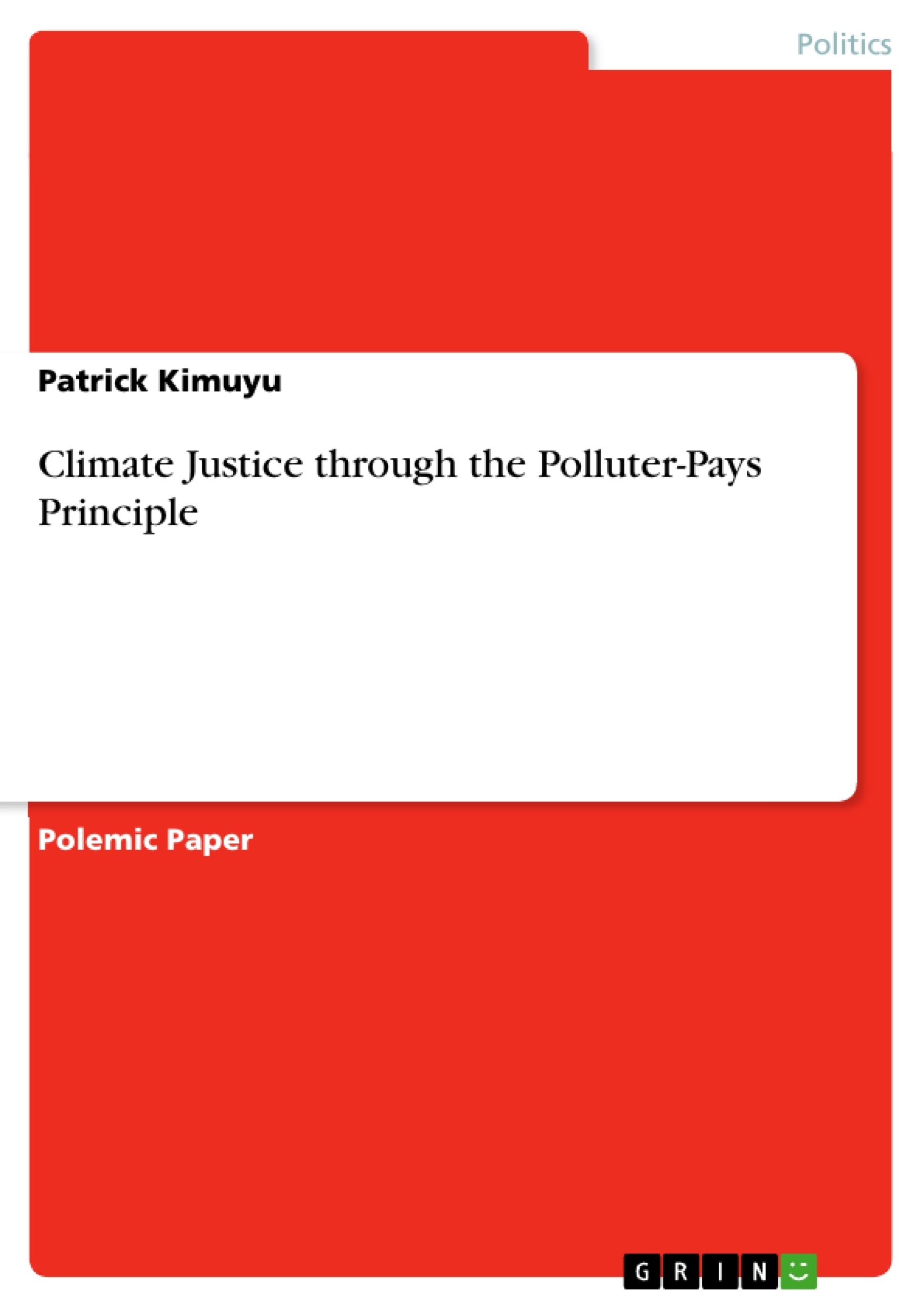It is evident that the environment is experiencing immense consequences from the impact of pollution. One of the most challenging issues related to the degradation of the environment owing to pollution is the phenomenon of climate change. Climate change explains the adverse effects of environmental degradation and pollution is the principal cause of this life-threatening phenomenon. Despite the remarkable progress achieved in combating environmental pollution through environmental policy approaches, there is a need for climate justice in which the polluter will be held responsible for the damage caused to the environment.
In theory, this is the approach of the so-called Polluter Pays Principle. This approach appears relevant in addressing issues related to environmentally-mediated to humans. Despite the endless debate on issues of morality and justice, especially in America, the tenets of climate justice should be upheld by enforcing environmental policies that require the polluter to pay.
Therefore, this argumentative essay will present an array of aspects that explain why the polluter should pay. It will discuss property rights, economic efficiency, tradable permits, and provide the means on how polluters can pay.
Climate Justice through the Polluter-Pays Principle

Polemic Paper , 2018 , 6 Pages , Grade: 1.3
Autor:in: Patrick Kimuyu (Author)
Politics - Environmental Policy
Excerpt & Details Look inside the ebook

